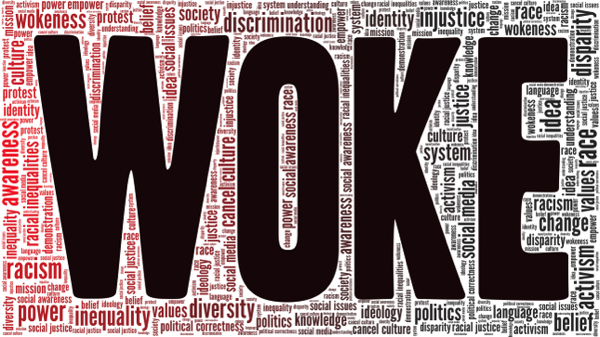Normal summer heatwave used as CHUM by the CLIMATE CULT to control the populace in Europe and take their money
07/11/2025 / By S.D. Wells

Despite record-breaking heatwaves scorching much of Europe and North America, public support for climate action appears to be weakening rather than intensifying. A recent report from The Guardian reveals that voters across the UK and Europe are increasingly tolerant of political rollbacks on green policies — even as extreme weather events, driven by climate change, become more deadly and frequent.
- Heatwaves Failing to Mobilize Climate Action: Despite record temperatures across Europe, including highs of 42 C in Spain, public concern about climate change remains muted. Many, like retiree Julie from Essex, acknowledge worsening summers but express skepticism about the government’s ability — or willingness — to act meaningfully on emissions.
- Climate Concern Falling Down Public Priorities: Polling data shows a decline in public concern for climate change in the UK, with support for net zero emissions by 2050 dropping from 62 to 46 percent. Climate issues now rank low compared to cost of living, healthcare, and immigration, reflecting shifting priorities amid growing economic hardship.
- Rise of Populist Climate Skepticism: Right-wing populist parties like Reform UK in Britain and far-right groups across Europe are gaining ground, openly opposing climate policies even in regions vulnerable to floods and fires. Many of their supporters tolerate, or even embrace, rollbacks of green regulations, viewing them as economically disruptive.
- Climate Policy as a ‘Self-Limiting’ Effort: Observers suggest climate action is only politically sustainable until it imposes visible economic or social costs. As living conditions worsen, especially in the UK, people are increasingly prioritizing immediate survival over long-term climate goals — even as the environmental toll continues to rise.
Guardian: European heatwave failing to spur support for climate action
Residents like Julie, a retiree from Stanford-le-Hope, Essex, express a sense of helpless resignation. While acknowledging that summers have become significantly hotter and worrying about the implications for younger generations, she, like many others, does not trust the government to take meaningful action. “It’s all too little, too late,” she says, reflecting a broader public sentiment of fatigue and skepticism surrounding climate policy.
Polling data supports this view. While a majority of people in the UK felt the late-June heatwave was too extreme and recognized the role of climate change, the percentage of people concerned about climate issues has declined from 68 percent to 60 percent over the past year. Support for the UK’s net-zero by 2050 target has fallen even more dramatically, from 62 percent to just 46 percent.
Ed Hodgson, an analyst from the research group More in Common, attributes the decline to the growing pressure of everyday issues. “Three years ago,” he notes, “climate would compete with immigration for third place after cost of living and the NHS. Now, it’s near the bottom.” With inflation, healthcare backlogs, and political instability dominating headlines, climate change has lost urgency in the minds of many voters.
This shift has emboldened far-right parties across Europe and the UK, many of which actively oppose environmental regulations. In Britain, Reform UK — led by Nigel Farage and already representing some towns like Stanford-le-Hope — has vowed to scrap the net zero target and expand domestic oil and gas production. Ironically, the party is expected to gain ground in some of the UK’s most flood-prone areas, underscoring the complex relationship between climate impacts and political behavior.
Meanwhile, half of Reform UK voters surveyed in a recent YouGov poll said they wanted a heatwave, revealing a desire for short-term comfort — such as beach weather — despite its long-term consequences. Similarly, far-right groups in Europe have used the heatwaves and wildfires to attack climate policies rather than reinforce them, even as public health officials warn of excess deaths and mass evacuations unfold.
The article suggests that the apparent decline in climate concern may not reflect apathy but rather a forced reprioritization. Faced with economic hardship and social strain, many people are focusing on immediate survival rather than abstract future threats. In this context, climate policy becomes self-limiting: it is only tolerated as long as it doesn’t interfere with daily life. When it does — through higher costs or restricted freedoms — public support quickly evaporates.
Ultimately, the heatwave has not been the turning point climate advocates hoped for. Instead, it reveals a public increasingly overwhelmed and disillusioned, retreating from ambitious environmental action in favor of coping with immediate crises. Check out ClimateAlarmism.news for updates on psychotic billionaires pretending like the earth is going to boil next year so they can take all our money and control us.
Sources for this article include:
Submit a correction >>
Tagged Under:
climate action, climate change, climate cult, climate hoax, conspiracy, corruption, deception, Ecology, environment, green living, Green New Deal, green tyranny, heatwave, insanity, lies, propaganda, summer
This article may contain statements that reflect the opinion of the author
RECENT NEWS & ARTICLES
COPYRIGHT © 2017 CORRUPTION NEWS




















